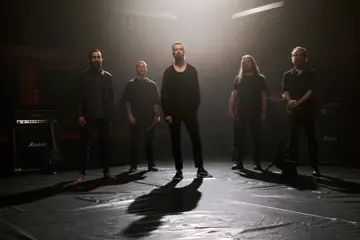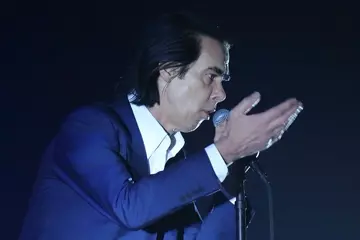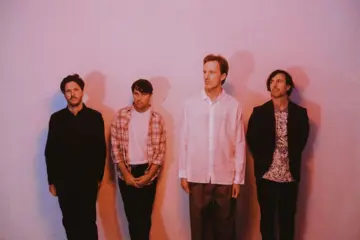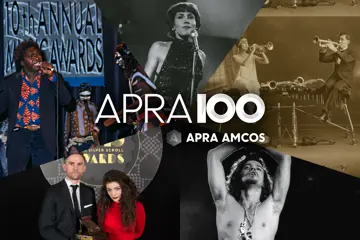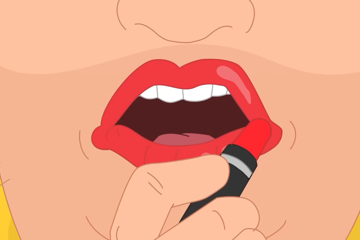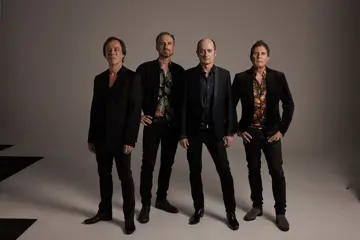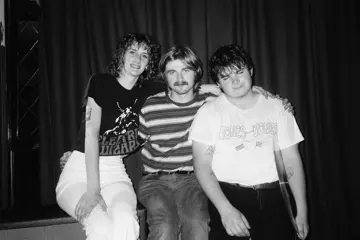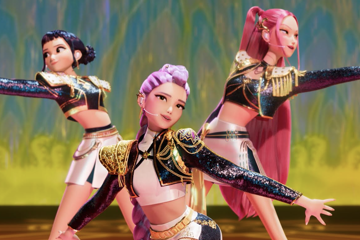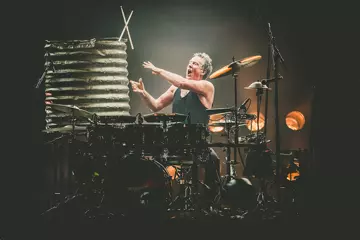Article written by Becki Whitton, who makes music as Aphir. Aphir's new album, Republic of Paradise, is out September 25th.
The pandemic, in its ever-unfolding benevolence, has created a unique set of obstacles for musicians in connecting with our listeners. Touring and live shows have always been crucial opportunities for us to share our work experience with the people who enjoy it. The current limitations around these events, however, have seen many artists shift their immediate focus towards releasing new music.
This poses its own set of problems, though, and throws into relief some of the pressures that already exist for artists around release day. In a recent tweet, Wafia talked about how “Sometimes songs come out and you don't get the playlists you were hoping for and that can feel so devastating, like it's over before it began”, and Cxloe spoke of how “Release week is so overwhelming that when the song finally comes out it’s earth shakingly underwhelming”.
I'm going to be really honest for a second. Releasing music is hard for me, the lead up & anticipation is rough on my mental health. Sometimes songs come out and you don't get the playlists you were hoping for and that can feel so devastating, like it's over before it began 1/3
— Wafia (@Wafiaaa) August 21, 2020
Release week is so overwhelming that when the song finally comes out it’s earth shakingly underwhelming
— CXLOE (@iamcxloe) August 22, 2020
These tweets hint at a reality that is perhaps not acknowledged enough - that the story behind any given song is very different for the artist and the listener. Of course, there is a beautiful point of overlap when the listener has had a similar experience to what the artist conveys in song. But there is always another story, lived out by the songwriter, that is not necessarily apparent to the casual listener: the story of the song’s creation.
Don't miss a beat with our FREE daily newsletter
For the artist, there is a long process of writing, recording, mixing, mastering, administrating, and promoting a release before it sees the light of day. In my own work, I often find that this process is part of the therapy of song-making - somewhere in all the practical work, the original feeling of anger or sadness or loss that motivated me to write the song in the first place becomes sublimated into my ability to pull together an impactful piece of art.
As an engineer, behind-the-scenes processes take up most of my life. Before this year, I felt convinced that these processes were less exciting to broadcast than the emotional kernel that sparks a song’s creation, or the narrative of new opportunities that many artists look forward to post-release. At the start of the pandemic, though, I wrote an album’s worth of lyrics about all my worst fears. The feeling of not wanting to be alone in my head with this body of work motivated me to stream the creation of my upcoming album, Republic of Paradise, live on Twitch.
It can be nerve-wracking to open up the process of making music to a broader audience; live-streaming my production meant that people could see my bad ideas unfold as well as my good ones, and witness moments of frustration as well as success. In the pandemic context, though, this seemed less intimidating than the prospect of producing songs that I honestly felt a little bit afraid of all by myself in my room.
I also found myself emboldened by other artists I look up to sharing some of their music’s behind-the-scenes stages. Perhaps most notably, the intense level of insight and input that Charli XCX gave her fans into the creative process behind her LP ‘how I’m feeling now’ helped me to feel like my credibility as an artist didn’t depend on seeming remote and aloof. On Instagram and in Zoom meetings, Charli’s followers were asked for their opinions on demos, single choices, and artwork for the release and, far from alienating her fanbase, it seemed to allow her followers to feel like even more a part of her process.
Here in Australia, too, artists are beginning to open up their process on platforms like Twitch and Instagram live. Again, the result seems to be the development of a much deeper connection with their audiences. Eilish Gilligan, who has become a regular Twitch streamer in recent months, describes the experience of sharing her work on livestream as “the most undiluted connection to my existing fans I have ever experienced, while also allowing me to reach new audiences from all over the world… I’ve never felt so connected to my listeners as I do when I’m chatting with them, laughing with them, forming inside jokes with them, having fun with them on a live stream”.
As well as offering this real sense of community between an artist and their audience, exposing the process also has the potential to alleviate some of the pressure around release day that Wafia and Cxloe spoke of. Creating my album live on Twitch has shown me that people are genuinely interested in how my songs are made. They find value not only in the completed work, but in my skills and ideas, my human moments, and my dumb jokes.
In her original thread, Wafia tweeted “I’m really proud of the body of work I made and the things that are within my control. Honestly seeing you share my EP has made me the happiest I’ve been in days. because that’s really all that matters - if it resonates with you”.
I know in my heart that’s not true but that’s how it can feel. All of this to say, I’m really proud of the body of work I made and the things that are within my control. Honestly seeing you share my EP has made me the happiest I’ve been in days. 2/3
— Wafia (@Wafiaaa) August 21, 2020
Taking a step back, it makes a lot of sense that release days aren’t the most rewarding part of a song’s lifecycle for us as musicians. The energising process of making the music - the part of the work that is in our control - is finished for the time being. We are ‘emptying out’ and handing the work over for other people to enjoy. At the same time, our listeners haven’t had the opportunity to attach our songs to an experience or emotion yet, so the link between the songs and their audience hasn’t been fully forged.
Publicly reframing art as a process rather than a product takes away the feeling that release day is the ultimate judgment day for artists and their work. Instead, it embraces the potential for artists to grow alongside audiences who can, in turn, share an immediate stake in the pride an artist feels in the music they make. It is my sincere hope that, if the Australian music industry can take anything positive away from the burning dog crap on its front doorstep that the pandemic has been, it will be a shift in focus away from judging artists by the statistics attached to them, and towards valuing their unique offerings to our creative landscape, both in their process and in their finished work.
Image credit: art shot by Isabella Connelley, hair & makeup by Kate McWilliam via Aphir Facebook
SEE ALSO
APHIR TAKES US THROUGH THE INSPIRATION BEHIND SOPHOMORE ALBUM ‘TWIN EARTH’



